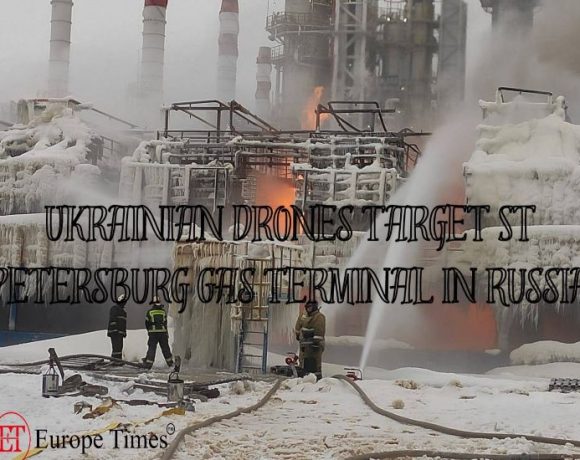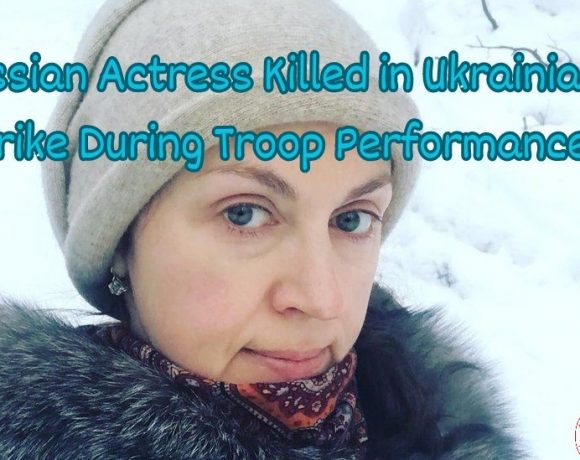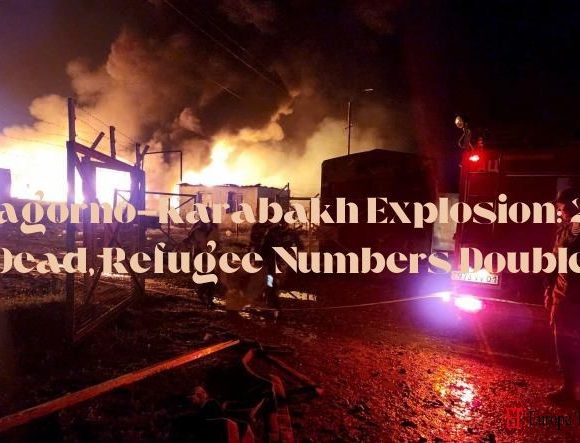
An explosion at a significant gas export terminal near St Petersburg in Russia has reportedly been orchestrated by Ukrainian drones, as informed by sources to BBC News. The incident, which caused a large fire at the Ust-Luga terminal, resulted in no injuries according to Russian officials. Ukrainian sources from Kyiv claim that the Security Service of Ukraine (SBU) conducted a “special operation” using targeted drones. Both Russia and Ukraine have utilized drones in the ongoing conflict.
The full-scale invasion of Ukraine by Russia began nearly two years ago, with limited progress reported in recent months. The explosion near St Petersburg occurred at the Ust-Luga terminal of gas producer Novatek, prompting a “high alert regime” in the region. Novatek suspended operations at the terminal, attributing the fire to “external influence” without providing specific details.
According to Ukrainian sources, the fuel processed at the attacked plant supplied Russian troops in the ongoing conflict, and this strike is said to significantly complicate military logistics. The attack is also characterized as an economic blow to Russia, a major fuel exporter from the terminal.
Reports from Russia’s Fontanka.ru include video footage of tankers near the fire, revealing that two drones were observed heading towards St Petersburg before altering their course towards the Ust-Luga port. Witnesses reported feeling the ground shake with explosions, and about 150 staff were evacuated from the terminal.
The Russian defence ministry stated it shot down three Ukrainian drones in the Smolensk Region near the Ukrainian border on Saturday night, following earlier reports of downed drones in Tula and Oryol in western Russia. No casualties were reported.
Additionally, on the same day, a shelling incident in the Russian-controlled city of Donetsk in eastern Ukraine resulted in at least 25 deaths and 20 injuries at a busy market. Russia and Ukraine have been targeting each other’s energy infrastructure, with a recent fire at an oil depot in Bryansk, southwest Russia, blamed on a Ukrainian drone strike. This follows an attack on a major oil loading terminal in St Petersburg and Russia’s claim of capturing a village near Bakhmut, which Kyiv has not confirmed. Ukraine, facing ammunition shortages, has expressed intentions to domestically produce a million drones this year.
Picture Courtesy: Google/images are subject to copyright


